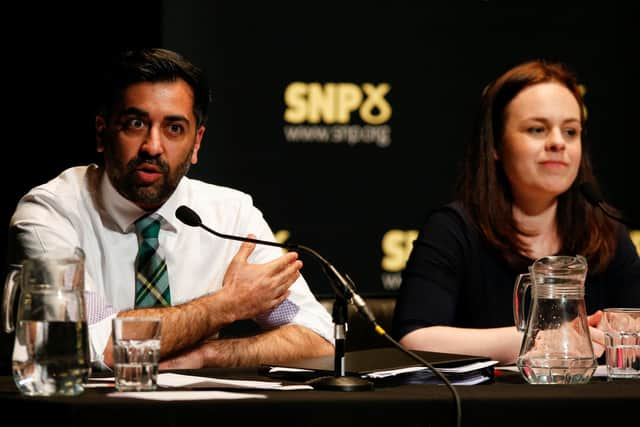As Fergus Ewing faces suspension, SNP's dominance of Scottish politics may be ending – Alistair Carmichael
Another week passes and another SNP veteran looks set to get the boot for questioning his party’s leadership. The latest victim of the circular firing squad appears to be Fergus Ewing, a former minister increasingly dissatisfied with Bute House’s edicts on fisheries, the deposit return scheme, and the coalition with the Scottish Greens.
When the rumours began to swirl earlier this summer, I somewhat jokingly asked Twitter: “If there is no place for a Ewing in the SNP – is it still the SNP?” It may surprise few to learn that this was not met with entirely good humour by my nationalist admirers on social media.
Advertisement
Hide AdAdvertisement
Hide AdThe defenestration of Fergus Ewing is just a symptom of a deeper challenge for the SNP. Nationalist MSPs are starting to look around at each other and realise they have little in common besides the nationalism. SNP members who see themselves as progressive found earlier this year that almost half of their fellow nationalists wanted to be led by Kate Forbes, someone so conservative that, were it not for independence, she could comfortably fit within the Tory party. The yellow-tinted glasses have come off.
For evidence of this, you need only look over to the Western Isles, where Angus MacNeil was expelled after complaining that there was no serious plan for independence – a little like being kicked out of clown school for wearing too much greasepaint. Even those of us who are sick of the nationalist sideshow could see Angus’s point. For all but the most fervent doublethinkers of the SNP, it is clear that independence is on the backburner, and the party is on the backfoot.
Most parties are imperfect vehicles for political ideals. Liberalism, conservatism, social democracy – no party ever entirely lives up to its principles, but those ideals are the magnetic north that allows us to know where we should be going. The secret to SNP's success has been that they could attract support from every side of the political spectrum, by telling people that any ideals they had came second to independence.
Replacing ideals with identity, they held together a coalition that was almost unbeatable. The only risk was that in time people might start to remember how deep their other political differences were.
It is no wonder that Nicola Sturgeon’s priority as First Minister was to keep her people furious and fixated on the next march, the next plan, the next referendum. Humza Yousaf knows enough to imitate his mentor’s tactics, as evidenced by the claim this month that he would unilaterally declare independence with a minority of votes in a general election.


The problem for the First Minister is that his plan is not credible. After a decade of marching up and down the hill, there is mutiny among the troops – and they are turning their fire on their commanders. That is the trouble with a grand coalition held together by a single cause. If you take out the unifying cause, the unity follows out the door shortly after.
If there is no place for a Ewing, it may still be the SNP – but a party which cannot keep its contradictory viewpoints under wraps may not maintain its dominance much longer.
Alistair Carmichael is Liberal Democrat MP for Orkney and Shetland
Comments
Want to join the conversation? Please or to comment on this article.